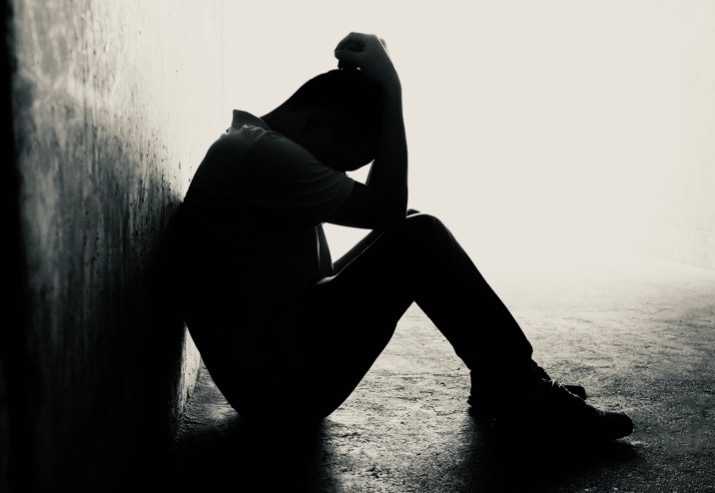And Now They’re Invading The Right: Don’t Stay a Victim
“Eagles don't flock, you have to find them one at a time..” Ross Perot.
I have always considered myself politically center-right.
More center than right.
I voted for Ross Perot(I) in 1992.
I just couldn’t vote for Dan Quale(R) (he was the Vice Presidental candidate with Busch(R)) and I just couldn’t vote for Bill Clinton(D) either, some called him slick Willy.
Turned out he was, slick Willy.
So, Ross Perot it was.
I was familiar with Ross Perot.
I had been to several conferences where he spoke to tech executives. His flip charts were always entertaining, but exact.
I was in MCAE (Mechanical Computer Aided Engineering) at the time.
Ross Perot was the founder of Electronic Data Systems (EDS) and Perot Systems, well known by software people of tha era. He also ran IBM and made them profitable for a while (IBM struggled financially in the 80’s and 90’s).
If he could make IBM profitable, he certainly could keep the American economy good in 1992.
Ross for Boss!
There have been a flurry of stories and interviews lately about how leftists (typically Democratic voters) are escaping the “bubble of the left” and moving into the centrist (typically independent voters) or heaven forbid, the political right camp (typically Republican voters).
If you go back and read the writings and recorded viewpoints of these people they are rabid (irrationally extreme in opinion or practice) leftists, but it wasn’t until they realized they couldn’t have an opinion that went against the “mainstream narrative” that they gathered up all of their toys and retreated to a sandbox where ideas and thoughts are permitted.
Many of them are now here writing at Substack.
If I listed those names, you’d recognize them all.
“I might have been able to stay with the Democrats. My policy ideals haven’t changed. But when they began dehumanizing the Trump supporters, many of whom do not have access to much of our culture, I could no longer stand alongside them. Until that changes, I will never vote blue no matter who.”
“The only thing I would say that’s different about my political thinking — and it has nothing to do with policy and politics — suddenly I’m getting along better with people who are Republicans,”
“The current left wing view seems to be ‘I believe in free speech but not for people I disagree with.’ Was it always this way? I know you right wing/right leaning folks will say yes but I don’t think so. I think the left used to vigorously defend free speech.”
I could dissect each of these, “But when they began dehumanizing the Trump supporters, many of whom do not have access to much of our culture”, really? Do not have access to much of our culture? I don’t even know where to begin…
It’s not a new phenomenon, it’s just the most recent.
Why do people abandon their ideology? Sometimes it is simply because they get access to new ideas.
When a person has been captured by a political ideology, they tend to exist in an information bubble. Once they leave that bubble, all the information in the world is theoretically available to them. Leftists Who Defect to the Right: Then and Now
The problem with these people changing camps is much like leftists moving to red states (typically conservatives who vote Republican inhabit these states) and taking their (typically Democrat) voting habits with them.
Except, in these recent cases, they bring their victimhood with them.
They can’t help it. It’s so ingrained (to establish something such as a belief so firmly that it is not likely to change).
You’ll see it in their writing, but especially in replying to commenters, in the way they perceive and write about a certain situation, their attitude towards others, how they participate in life.
And it’s not subtle, that victimhood they portray.
In that leftist bubble, the only way to be successful, is to be a victim,1 they must perfect and dramatize a personal “narrative of suffering”.
Once relocated to the centrist-right, the victimhood continues except, how many centrists/right leaning folks are buying it?
I know I find the sense of victimhood pretty annoying.
Don’t Be a Victim
When I use the word “victim” I am referring to the definition where the meaning is “one that is subjected to oppression, hardship or mistreatment.”
While there may be true situations where one is subjected to “oppression, hardship or mistreatment”, more often than not, the kind of victimhood I’m talking about is self-imposed.
Popular culture today is very good at encouraging self-sabotage, or “victimhood”. If you constantly feel others are controlling you, denying you what you want or need, making you do what you don’t want to do, then you have allowed yourself to become a victim.
Blaming others for things that happen to you is how the learning begins.
Your parents, the actions of the previous generation(s), are typically the scapegoats (person who is blamed for the wrong doings, mistakes or faults of others) that public education and other sources intentionally gives you.
Yu Xiangzhen was only 13-years-old when Mao kick-started his bloody Cultural Revolution in 1966. The schoolgirl read Mao's Little Red Book, wore the red armband of the Red Guards, and describes just how indoctrinated China's school system had made her and her fellow students, who she says were taught that Mao was closer to them than their own family. Mao Zedong’s ‘Little Generals’
Sound familiar?
As soon as you allow yourself to feel like a victim you’ve become subject to someone or something else.
The simplest explanation is this: Victimhood is a state of mind leading people to live with a perpetual sense that external forces are wronging them.
These forces can include life events, one’s heritage, and other people.
Victims never acknowledge what they may have done to contribute to their circumstances.
Victimhood mentality breeds resentment and distrust of people.
If you’re a victim, you feel helpless.
Being helpless is learned.
It’s important to point out that the researchers do not equate experiencing trauma and victimization with possessing the victimhood mindset. They point out that a victimhood mindset can develop without experiencing severe trauma or victimization.
—
Where does the victimhood mindset come from? At an individual level, many different factors most certainly play a role, including real victimization in one’s past. However, the researchers found that an anxious attachment style was a particularly strong antecedent of the tendency for interpersonal victimhood.
Anxiously attached individuals tend to be dependent on the approval and continual validation of others. They seek reassurance continually, stemming from doubts about their own social value. This leads to anxiously attached individuals seeing others in a highly ambivalent manner. Unraveling the Mindset of Victimhood.
In the book The Rise of Victimhood Culture: Microaggressions, Safe Spaces, and the New Culture Wars (2018) by Bradley Campbell and Jason Manning, they contrast what they call “victimhood culture” with two previously predominant moral cultures: “honor culture” and “dignity culture”.
Their entire study was done because of what they saw with college students beginning in 2014 and they predicted what we are seeing today.
“Honor culture” is one in which one’s reputation and character is of the utmost concern, and reaction to perceived slights or attacks on one’s honor is hypersensitive. In this culture, conflicts are dealt with personally, without involving others, and often resort to violence, which is perceived not as a breakdown of civility, but as a just and admirable defense of one’s character (think dueling).
“Dignity culture” is one in which one’s dignity is of utmost concern. Perceived slights are encouraged to be ignored or brushed off, and larger conflicts, if incapable of being resolved peaceably between parties, are reported to distant and impartial third parties (think legal action). Resorting to violence is seen as a breakdown of this process, and beneath the dignity of those involved.
“Victimhood culture” is one in which people have a high sensitivity to slights, and have a tendency to handle conflicts through complaints to authorities, or in some cases publicly campaign for recognition of their victimization. In this culture, victims are often elevated in moral standing, while those who are perceived to be privileged are demoted.
In the book The Coddling of the American Mind: How Good Intentions and Bad Ideas Are Setting Up a Generation for Failure by Jonathan Haidt, Greg Lukianoff, studied upper middle class college kids born after 1995 that arrived to college in 2014.
The authors frame the issue around the “three great untruths” that are promoted on many campuses across the US, which are creating an environment that not only blocks open inquiry and learning but that leads to polarization, emotional immaturity, fragility, violence, and mental illness.
The three untruths:
The Untruth of Fragility. (What doesn’t kill you makes you weaker.) It recommends the avoidance of the unpleasant, the uncomfortable, and the inconvenient.
The Untruth of Emotional Reasoning. (Always trust your feelings.) In some academic settings, feeling can be the opposite of thinking.
The Untruth of Us Versus Them. (Life is a battle between good people and evil people.) We are the Good People, of course, and they are the Evil People.
These three untruths, promoted and practiced daily, create a student body that is unreceptive to other viewpoints, easily offended, self-righteous and eager to earn points within the group by calling out and ostracizing (not allow (someone) to be included in a group) those with different views.
The great untruths are damaging both socially and psychologically.
If you want to enhance your intellectual fortitude, you have to expose yourself to different and sometimes controversial or offensive ideas.
Academic freedom is under siege. A new survey from the Foundation for Individual Rights and Expression (FIRE) reveals professors are shutting their mouths and biting their tongues out of fear of being canceled.
Report here: (The Academic Mind in 2022: What Faculty Think About Free Expression and Academic Freedom on Campus)
—
When professors at even the finest of institutions are avoiding controversy, it spells disaster for public faith in academia. How can we trust academics to push boundaries and make discoveries if everyone is too afraid to challenge the status quo? More than half of college professors bite their tongues over cancel culture fears.
If you are told consistently, year after year, to blame others you will feel helpless. This sort of teaching is stealth and done using a number of techniques that includes very specific language.
The end result is a citizen who depends on others and not themselves and that was the plan all along.
Being helpless has its benefits.
You’re dependent.
You can get others to do things for you (government), provide things to you that you wouldn’t otherwise have (government), treat you a certain way they wouldn’t otherwise (government).
Being helpless has downsides too.
You never learn how to complete tasks you’ve failed at.
You haven’t learned how to acquire things that you have been given.
You are surprised when someone else sees you as being inferior because you can’t accomplish certain tasks.
Your perception of reality is skewed (distorted).
As a victim, you can easily be controlled with ideas that are contrary to preserving personal freedoms.
In a nutshell, in being helpless, you give away personal freedoms, and you become a conformist (someone who matches attitudes, behaviors and values of the collective).
You’ll see all of these characteristics in the folks who claimed to have escaped the “bubble of the left”. You’ll see it the way they perceive and write about a certain situation, their attitude towards others, how they participate in life.
Results demonstrate a clear partisan distress gap, with Democrats consistently reporting worse mental health than Republicans. Distressed Democrats and relaxed Republicans? Partisanship and mental health during the COVID-19 pandemic.
Have you escaped the “bubble of the left”?
Do you believe you have escaped the “bubble of the left”?
If you have, you also must shed that victimhood you potentially bring with you.
You will be happier in not always feeling like a victim.
Shifting to the center or center-right also means shifting to attitudes that go against the social-justice mentality of the left.
It requires you to be self reliant and non-conformist.
“Eagles don't flock, you have to find them one at a time.” Ross Perot.
Or my interpretation:
“Turkeys flock, eagles soar.”
It might require shifting to a conservative mindset.
Most conservatives agree on these basics:
Government that does the least does the best.
The individual is of greater value to society than the collective (denoting a number of persons or things considered as one group).
As an individual succeeds, the nation as a whole succeeds.
Power in the hands of a few is bad and collectivism is a disaster.
Power in the hands of the unelected is bad and should be given sparingly.
Free markets coupled with free people will benefit us all.
There’s an old saying I will leave you with:
“Give a man a fish and he will eat for a day. Teach a man how to fish and you will feed him a for a lifetime.”

Want some famous, American made, wealthy victims? Megan Markle(B list actress), Megan Rapino(USA women’s soccer), LeBron Raymone James(NBA), Colin Rand Kaepernick(ex NFL football).










I remember my dad voting for Ross Perot. I'm on the road, but am saving this to come back to later.
I seem to recall it was Perot who defined politics as the art of shirking responsibility, and blaming someone else..... Sad to say, his vision of politics has become a way of life in modern-day America where everyone is a victim. Nobody wants to be responsible, everyone is quick to blame others, and being a victim brings with it a feeling you are owed something by those who accepted the responsibilities life has to offer. Wish there was an easy way out of the "victimhood" trap that has taken hold in our younger generations, but I just don't see it. Excellent article!!